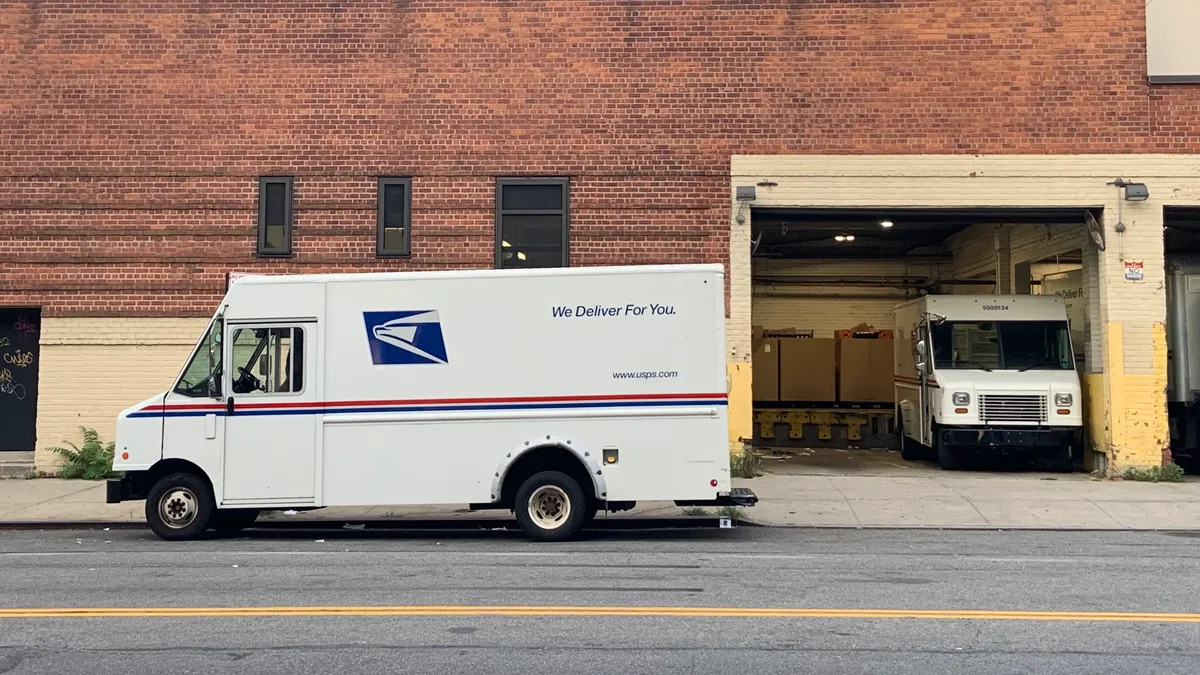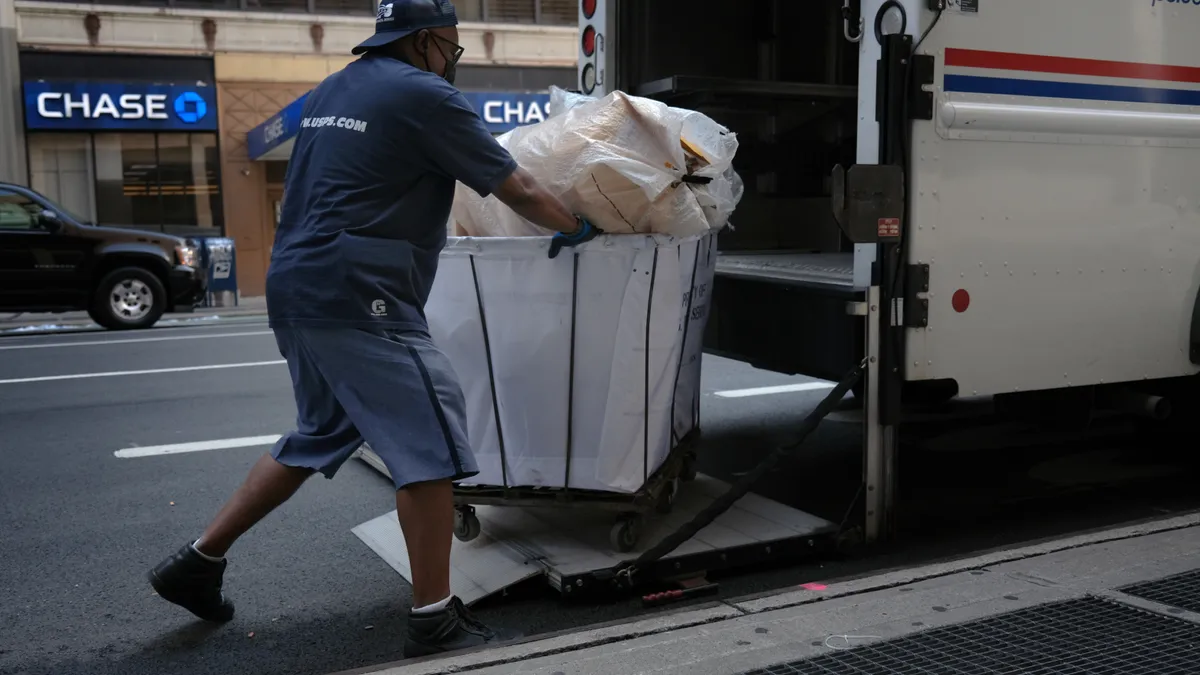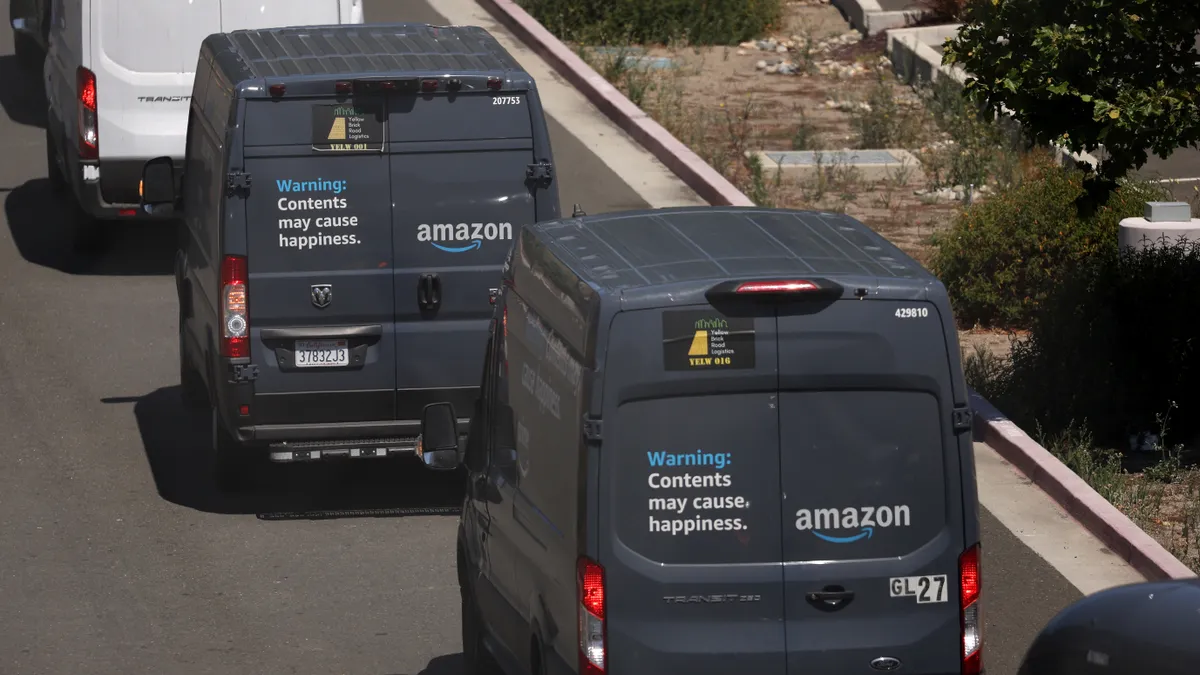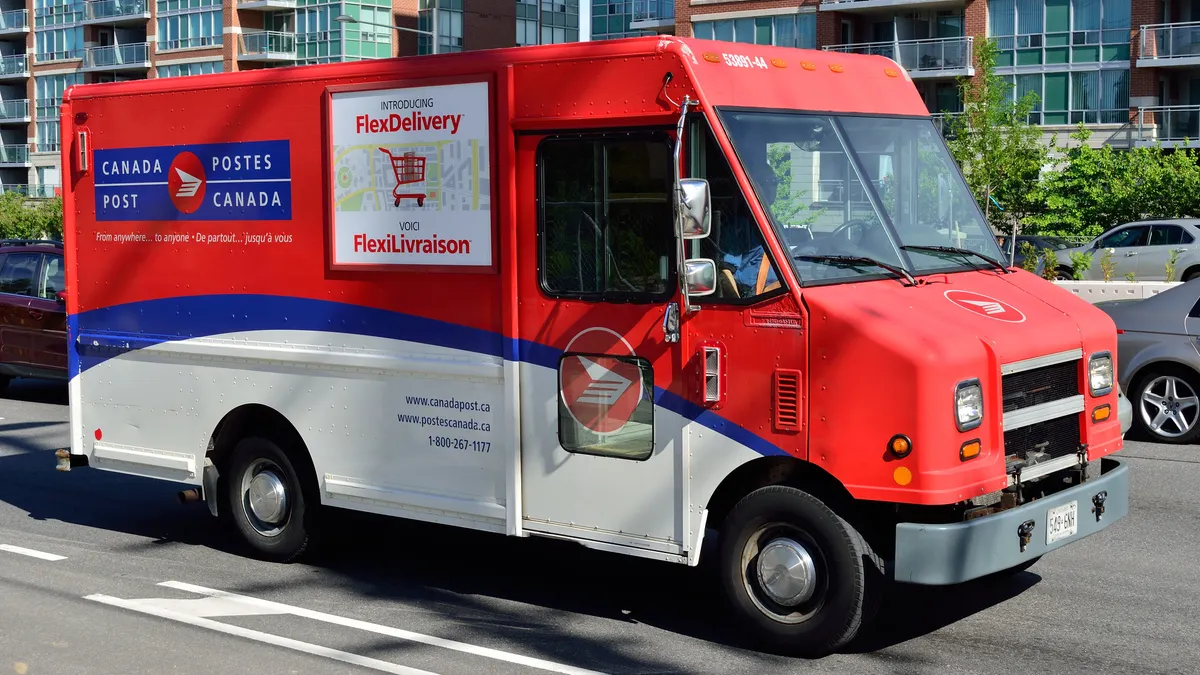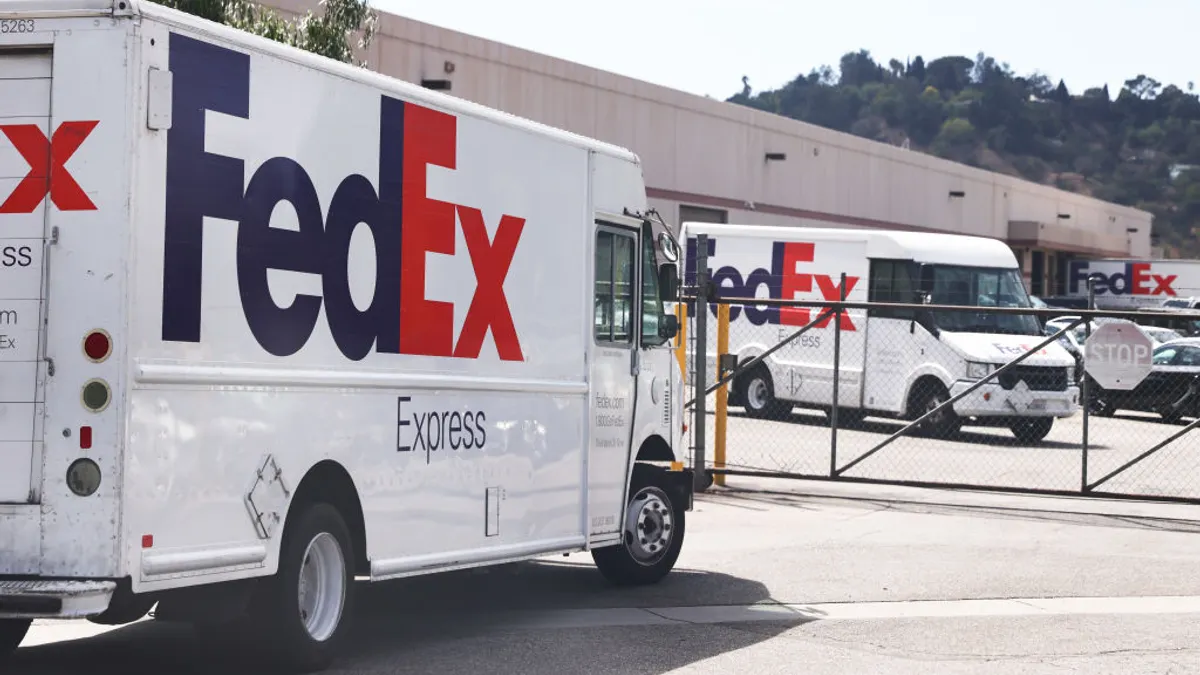This is a contributed op-ed written by Paul Steidler, a senior fellow with the Lexington Institute. Opinions are the author's own.
While the Chairman of the Package Coalition recently wrote an op-ed about how the U.S. Postal Service "rose to the challenges" of the holiday season, the American public — which has been experiencing unprecedented poor mail service — vehemently disagrees.
Only 64% of first-class mail in America was delivered on time for the week ending Dec. 26, 2020, a record-poor performance. Yet 94.6% of USPS packages met their deadline for the same period. No wonder Package Coalition Chairman John McHugh is happy, and Americans who rely on the mail are not.
Packages by their very nature are disruptive to the free flow of mail. They are bigger, bulkier and do not go to every address. They take up more room and require more trips back to postal facilities from delivery routes. On March 11, Postmaster General Louis DeJoy testified that a tractor trailer can hold 500,000 pieces of mail but only 5,000 packages.
The timely and efficient delivery of mail is essential for keeping the U.S. economy humming and supply chains efficient. Unlike package delivery, which is a competitive service, only USPS can legally deliver mail. It has a monopoly on this essential public service, and its mission performance has degraded by having to handle so many packages.
USPS needs a fundamental restructuring, including re-engineering from top to bottom, of all processes.

When checks, legal documents, tax filing forms, business advertisements and other important correspondence are delayed, businesses get out of sync and have serious problems. This includes not being able to pay people and losing customers.
Mail delays may pose minimal disruptions for companies that receive online orders and immediate electronic payment. But they harm businesses and consumers throughout America, particularly when checks are delayed. Mail delays are thus a drag on the economy and productivity.
And many Americans still use checks. According to the Federal Reserve, Americans wrote 14.5 billion checks in 2018 with a value of $25.8 trillion.
There is voluminous media coverage about the impact of poor mail service. On Feb. 26, The Washington Post reported, "Consumers are inundating members of Congress with stories of late bills — and the late fees they have absorbed as a result."
The Package Coalition should support reforms that will ensure modern postal operations and a modern pricing system that sets appropriate rates.

Both Democrat and Republican members of Congress are calling for reform and answers from USPS. A formermember of Congress, McHugh should join them.
The pandemic has accelerated trends at USPS whereby packages account for a large part of its operations. In January, package volume was up 31% compared with January 2020, while mail volume was down 14% in the same period.
USPS needs a fundamental restructuring, including reengineering from top to bottom, of all processes. It needs to determine the infrastructure for improving mail service and for package delivery. Like any effectively run organization, it should also break out the costs for each area so that prices are set accordingly.
Such best practice recommendations have been made repeatedly. In 2018, the U.S. Treasury Department’s Postal Task Force called for USPS to have separate balance sheets. The report recommended "a separate balance sheet for packages to help prevent cross-subsidization between the mail and package business units."
In a Sept. 17, 2020, report by the USPS Office of Inspector General, Costing Best Practices, USPS was urged to take a more granular approach to understanding its costs on a per product basis. This reiterated strong, but still not implemented, recommendations from a 2014 report which said:
"A modern, bottom-up costing system would provide substantial and numerous benefits to the Postal Service, similar to those enjoyed by companies of comparable sizes. Key examples include support for performance management and cost reduction efforts, optimizing the product portfolio, driving investment decisions, making effective pricing decisions, and managing the customer base for profitability."
From its position of strength and prosperity, the Package Coalition should support reforms that will ensure modern postal operations and a modern pricing system that sets appropriate rates. This should also be done before any further bailout funds are provided to USPS, on top of $10 billion from last December’s COVID-19 package.
With such changes, USPS will be re-focused on its primary mission to benefit businesses and consumers.


